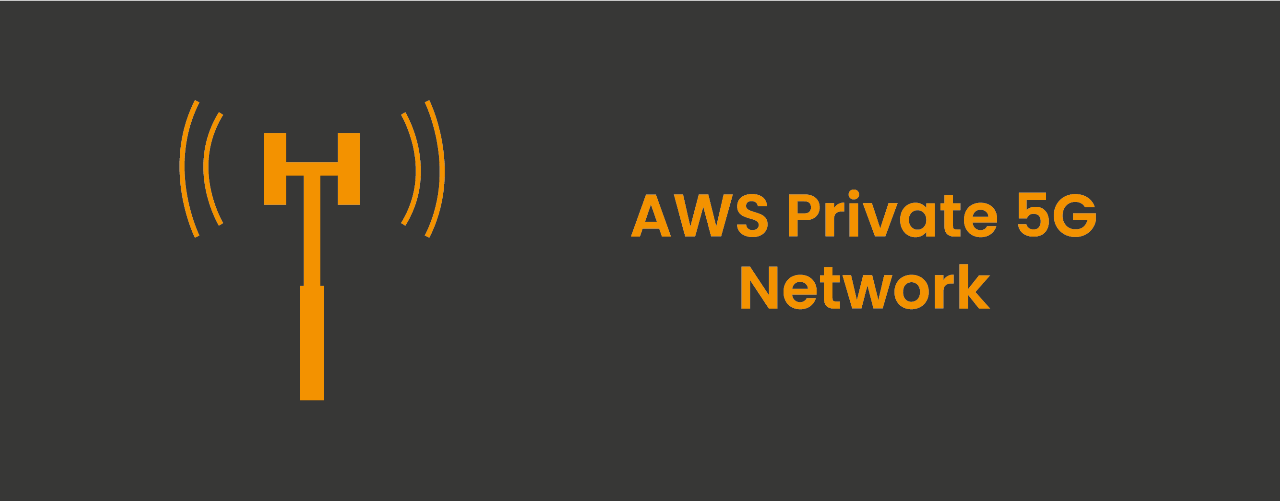At Amazon re:Invent 2021 event, AWS Private 5G managed network service launched by AWS CEO Adam Selipsky. According to the company, it will allow organisations to deploy and manage a private 5G mobile network quickly. Also, it has a flexible scalability option to keep it cost-effective for businesses.
Table of Contents
Why AWS Private 5G?
Setting up AWS Private 5G network is a more reliable option than current Wi-Fi standards for many organisations. The primary purpose of having a private 5G mobile network is to get IT and IoT devices connected.
If you have thousands of IoT devices in a factory or warehouse, long-range 5G can get it connected with no issues. You can assure a stable connection with high data transmit rate for IoT sensors to increase productivity.
Another great use of private 5G mobile network is campus connectivity. For example, video training is common in a classroom nowadays, which requires a low-latency high-speed network. 5G private mobile network solves the issue where unstable and unreliable Wi-Fi is the problem.
Adam Selipsky, the AWS CEO, said, “It sets up a mobile network that can span anything from your corporate office to a large campus to a factory floor or a warehouse. You just pop the SIM cards into your device, and voila, everything is connected”.
Indeed, it’s straightforward and cost-effective to set own private 5G network with AWS services. They use a shared 5G spectrum, so you don’t have to worry about the license. You can also quickly scale up or down the network as you need with the AWS console.
How will AWS Private 5G network work?
To set up a private 5G network with AWS, you have to order where you want to build it and the required capacity. Then AWS will ship the necessary hardware and SIM cards to connect 5G compatible devices to the network.
Further on, AWS will manage a small cell radio unit and server for your private network as per managed service agreement. Then you can also order new SIM cards for the new devices you adding to your network. In future, it may support the eSIM to reduce the cost and fast deployment process.
Previously AWS was delivering 42U rack servers to outpost units. But they have 1U and 2U servers available for easy deployment in small offices, factories and hospitals.
Amazon itself used a private 5G network in its warehouses to track robot processed parcels. Also, it is beneficial in an outpost where you are in the middle of nowhere, and you need connectivity. AWS private 5G network can collaborate with other companies and provide the desired service in various industries.
Will Australia get the AWS Private 5G network services?
AWS private 5G mobile network services are currently announced for the United States customers only. But Amazon will expand its private 5G services in other countries in future in collaboration with local telecom companies.
You may have seen the news about TPG, Optus and Telstra moving towards the standalone 5G network. Currently, Australian telecommunication companies are building 5G networks as an alternative to NBN. But there is no doubt of future usage as a private 5G or IoT network.

What are the benefits of having a own 5G network?
As mentioned above, the Private 5G network is helpful in many cases, like fast, responsive video learning. Also, IoT is a significant player for private 5G networks to share the data from various sensors reliably.
You may see a bunch of companies in future running Long-Range (LoRa) networks. It will provide connectivity to gadgets like smart dog tags, kids tracking watches, parcel trackers and more. In short, it will work like a Advanced Mobile Location tracking to help people in remote places in future. All these IoT sensors need some connectivity, and 5G is the reliable next-gen option.
LoRaWAN (long-range wide-area network) is a low powered network built by the public. Many companies even pay you for running their network unit like routers. You can check Helium, where they pay you in cryptocurrency to build their private LoRaWAN network. It’s a small router device that consumes low power, mine HNT crypto coins, and connects IoT devices. So you get paid while helping them to build their wireless network.
Final Thoughts:
AWS private 5G network service is easy to set up and scalable as per requirements. It could have a 4G LTE service or 5G, which will help to connect low-latency high-speed and IoT devices. Also, the customer pays only for what they need, so no minimum commitment requires.
However, AWS private 5G network services are available only in the United States. But it will expand in future in other countries if demand is there. Apart from Amazon, local Australian telecom companies like Telstra, Vodafone, TPG and Optus moving towards the standalone 5G network. Optus is already working with Thinxtra to track the IoT (Internet of Things) sensors for parcel delivery.
So standalone private 5G networks are the future for IoT and faster broadband connectivity. These networks work as a low-latency network and create a peer-to-peer network for many other services. Who knows, they may add blockchain technology in future to serve banking and other services.